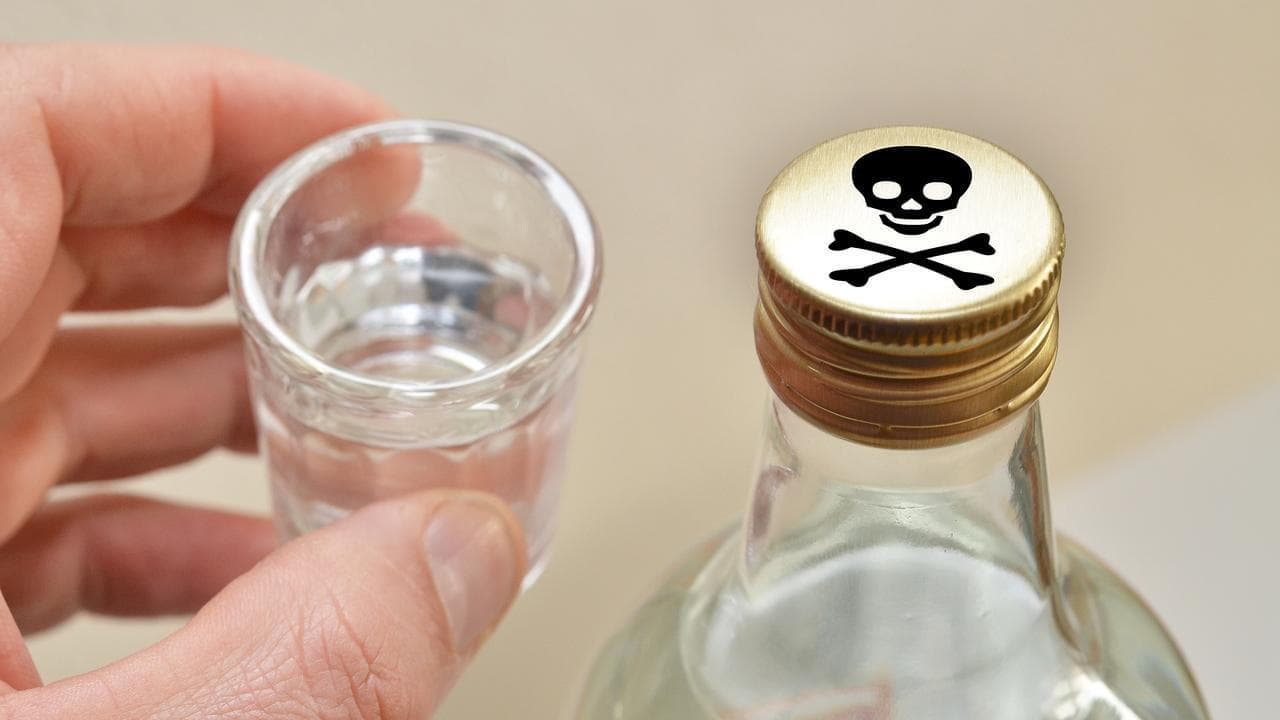WHAT WAS CLAIMED
Polio is present in every sewerage system.
OUR VERDICT
False. Polio is only very occasionally detected in sewage samples.
An anti-vaccine campaigner has downplayed news that polio was detected in London sewage by claiming the virus lives in water so "every sewerage system is going to have it".
The claim that polio is present in every sewerage system is false. Polio is endemic in Afghanistan and Pakistan but is rarely detected in other nations. Experts told AAP FactCheck that polio needs human hosts to survive beyond a few days.
The claim was made by Meryl Dorey from the Australian Vaccination-risks Network (AVN), a vaccine-sceptic campaign group with a long record of promoting vaccine misinformation.
Ms Dorey made the claim in a video published on September 20.

In June, the UK Health Security Agency said it had ramped up polio monitoring after a mutated virus was detected in London's sewage water.
However, Ms Dorey suggested the detection in London should not be cause for concern.
"Polio is a virus that lives in water, so of course, every sewerage system is going to have it," she says (video mark 6min 40sec).
When asked by AAP FactCheck for the basis of her comments, Ms Dorey said: "Can I prove that polio is found in every sewage system? No, because not every sewage system has been tested for the presence of the polio virus… Perhaps instead of saying all sewage systems, I should have said the majority of them."
However, even the claim the majority of sewerage systems contain polio is false.
Polio (also known as poliomyelitis or poliovirus) is a viral disease that mainly affects young children. It is usually transmitted through contact with human faeces but can spread through contaminated water or food.
Around one in 200 infections leads to irreversible paralysis.
Two types of polio vaccines are used to protect people from the virus.
The most common is a live attenuated oral vaccine that contains a weakened version of the virus. Oral polio vaccines are cheap and highly effective but come with a very small risk that the live virus in the vaccine may cause paralysis.

The Global Polio Eradication Initiative (GPEI) puts that risk at around two to four paralysis events for every one million vaccine recipients.
Live attenuated oral polio vaccines can also lead to virus shedding through the faeces of the vaccine recipient. The GPEI says that very rarely, when there is insufficient coverage in a community, the live vaccine-virus may be able to circulate and mutate.
The resulting virus is known as vaccine-derived poliovirus. By contrast, polio not derived from live vaccines is known as 'wild poliovirus'.
The second type of vaccine is an inactivated vaccine that is injected into recipients. It is not a live virus so there is no risk it will cause polio paralysis or shed in faeces.
However, injected polio vaccines are more expensive and induce lower levels of immunity.
Australia, the UK and the US previously used the live oral vaccine but now offer only the inactivated (injected) version.
The poliovirus found in UK sewage samples was a vaccine-like virus, meaning it could only have come from the shedding of an oral vaccine that had mutated.
Professor Michael Toole, an infectious disease and international health expert at the Burnet Institute in Melbourne told AAP FactCheck that because the UK no longer offers oral vaccines, the person in London who shed the vaccine-virus must have been vaccinated outside the UK.
But he said it was not true that poliovirus can be found in every sewerage system.
He used the example of Bihar state in eastern India, where polio was wiped out after an aggressive eradication campaign in 2011.
"It was in the wastewater everywhere and they had very poor sanitation. And that led to a lot of children being infected, even if they had the vaccine, because they were just overwhelmed by the virus in their drinking water," Prof Toole said in a phone interview.
"But now in India, you will not find any (polio) virus in any wastewater across the whole country," he said.
In response to Ms Dorey's revised claim, Prof Toole said it was rare for polio to be detected in sewage samples, even in places with routine testing.
Egypt has been conducting wastewater surveillance in 19 provinces since 2000 but has detected it only infrequently, Prof Toole said.

In Melbourne, wastewater surveillance has been underway since 2014 (page 2) but the virus has only been detected once, in 2017, he said.
Likewise, Prof Toole said London conducted regular wastewater testing and did not detect the virus until 2022 while routine testing in Israel has only detected the virus twice, first in 2013 and then in February 2022.
Associate Professor Bruce Thorley, the chief investigator for Australia's national polio surveillance program, also told AAP FactCheck the claim is wrong.
Occasionally vaccine-derived poliovirus is detected in sewage in Australia but it is not always present, Prof Thorley said in a phone interview.
"We've detected it a few times over many years. And we might detect it once but then we won't detect it again," he said.
The majority of sewage samples in polio-free countries are free of poliovirus, he said.
"Occasionally we do detect it. And that's to be expected while the oral vaccine is still being used in the world."
Dr Thorley said the virus cannot survive for long without a human host.
"The natural host of the polio virus is humans. To infect humans the virus needs to be able to replicate or make more virus particles," he said.
"It can survive for a number of days, but over time, it degrades and can't reproduce," he said.
Polio cases and polio deaths have plummeted since the first vaccine in the 1950s. Only 140 cases of wild poliovirus were recorded in 2020, all in Pakistan and Afghanistan.
AAP FactCheck has previously debunked claims polio was not caused by a virus and could be treated with antitoxins.
The Verdict
The claim that poliovirus can be found in all sewerage systems is false. Vaccine-derived polio is only very occasionally found in sewage samples. Polio requires human hosts and cannot survive indefinitely in sewage.
Wild polio can be found in wastewater where the virus is widespread. However, thanks to vaccines, polio is now endemic in only two countries.
False - The claim is inaccurate.
AAP FactCheck is an accredited member of the International Fact-Checking Network. To keep up with our latest fact checks, follow us on Facebook, Twitter and Instagram.












